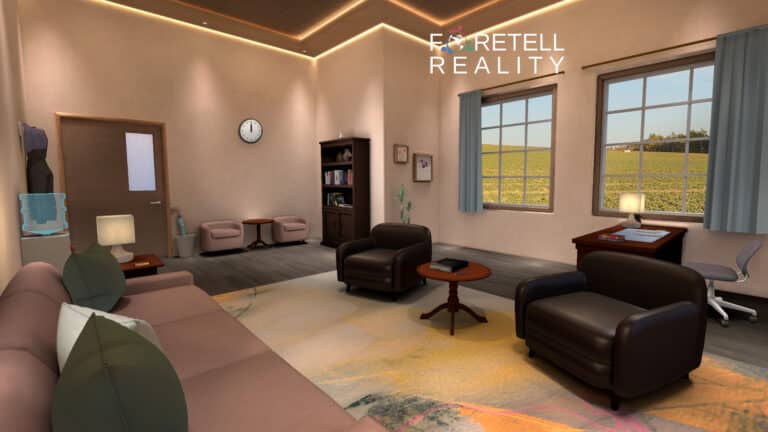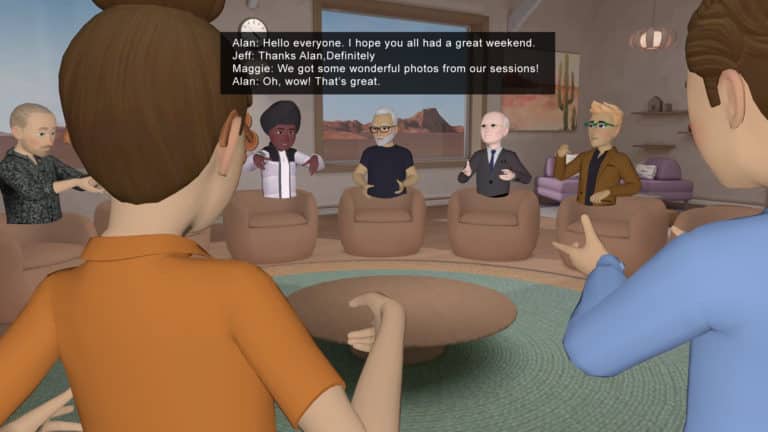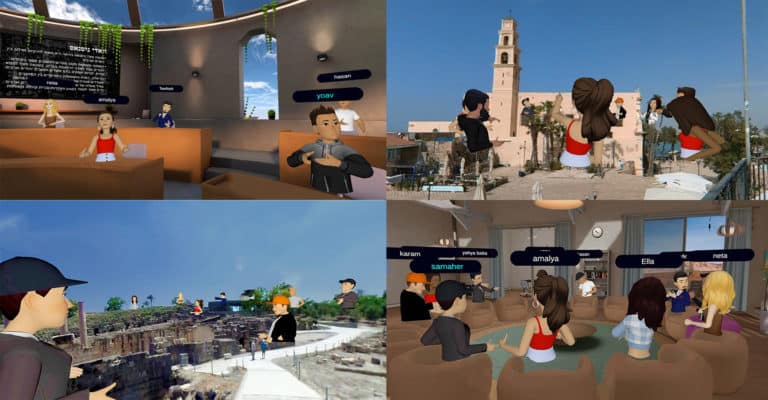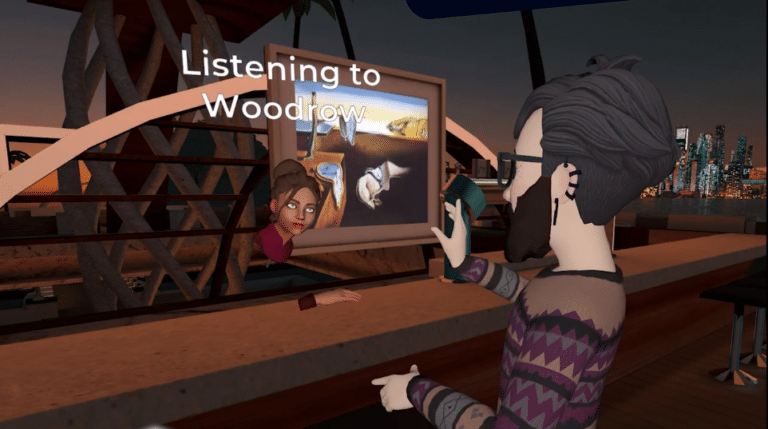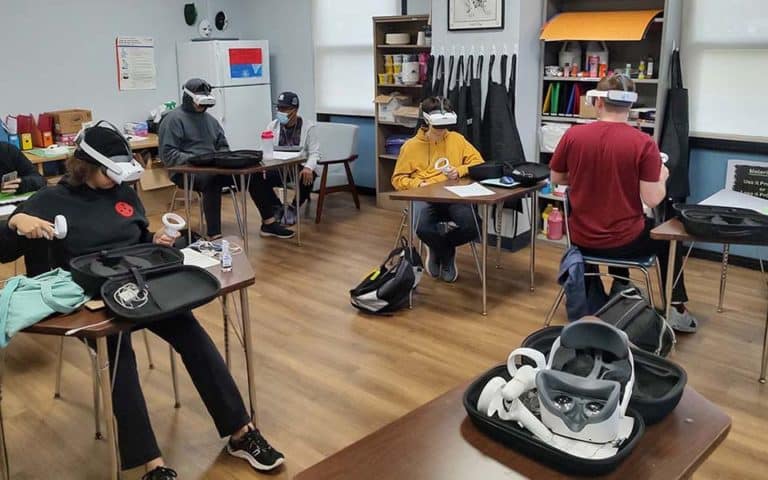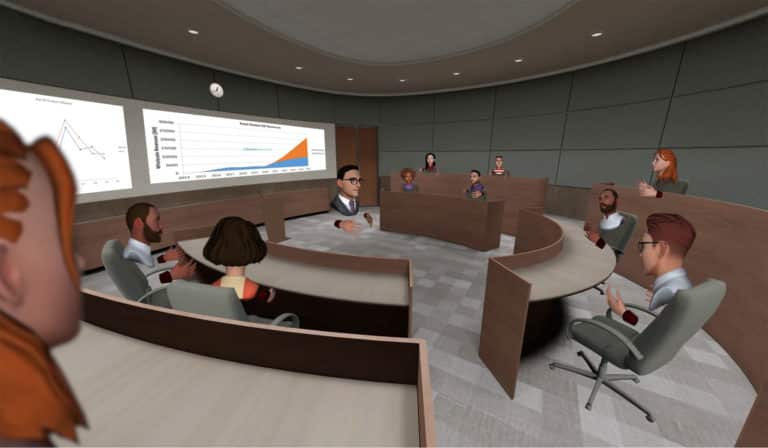
A recent LinkedIn survey revealed that 92% of talent professionals reported that soft skills are equal or more important in the hiring process than hard skills and 89% say that bad hires typically lack soft versus hard skill requirements.
While may seem counterintuitive, VR provides unprecedented means to replicate and practice real world social experiences, and advance soft skills:
1. Comfort in Anonymity. Improving soft skills requires playing out different roles and scenarios. This can be intimidating for those who don’t feel comfortable ‘acting’ or ‘pretending.’ With VR, identity and voice are fully anonymized freeing participants to focus on the ‘real’ situations they find themselves within VR.
2. Breaking Down Walls. Detailed and authentic environments provide a level of immersion that is hard to replicate within a traditional physical space. The feeling of having already experienced something results in greater confidence and familiarity when entering into actual situations.
3. The Immediacy of Empathy. Empathy is one of the fundamental soft skills to learn but also one of the most difficult to teach. With VR, roles can quickly be reversed creating an immersive change in point of view instantly. A doctor can immediately become a patient and vice versa. This allows participants to focus on visceral feelings instead of intellectual reactions.
4. The Man and the Machine. For VR soft skills training, AI provides an always on partner, ready to practice scenarios that require repetition. This is incredibly valuable but even more so when more people get involved. Feedback and encouragement provided by human participants that join AI role players provides the best of both worlds. AI provides a constant to evaluate and measure progress while humans provide motivation and direction (also soft skills).



